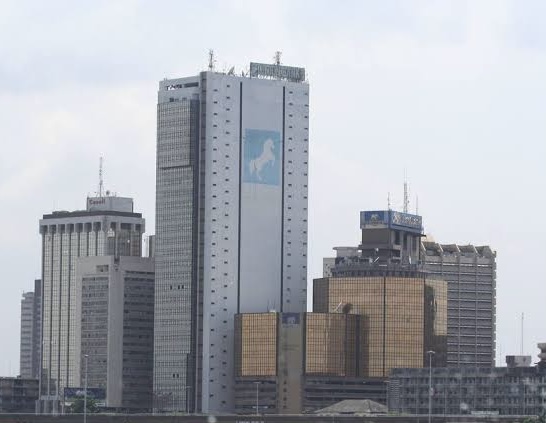
Logistics keeps Nigeria’s real economy breathing—from ports and tarmacs to urban depots and intercity highways. The sector also relies heavily on outsourced and contract labour (drivers, riders, handlers, sorters, warehouse operatives). That flexibility powers scale, but it can also mask HR weak points that sap safety, quality, and retention.
Below is a fact-based view of what’s working—and what isn’t—drawn from public labour statistics, transport-safety guidance, and verifiable employee-review signals.
Pay, parity and churn
Across many logistics roles, contract/outsourced workers report thinner benefits and lower base pay than core staff doing similar work. That disparity feeds churn—expensive in a time-critical business. The structural context matters: only ~12% of Nigerian workers are in wage employment (Q2 2023), so a large share of the workforce sits outside robust employment protections.¹ Nigeria’s ₦70,000 national minimum wage (passed July 2024) sets a legal floor, but enforcement is uneven—especially in third-party arrangements.² ³
Safety, fatigue and “voice”
Time pressure, long routes and night driving heighten fatigue risk. FRSC guidance calls for rest after four hours of continuous driving and at least 8 hours’ rest in a 24-hour period, with daily driving typically capped around 9 hours—mirroring international good practice.⁴ ⁵ ⁶ When workers fear contract loss or lack a clear grievance route, they under-report near misses—exactly when you need their voice most.
Training and capability
Where companies invest in defensive-driving, HSE, load-securement and customer-care training (and extend it to contractors), reviews tend to mention stronger culture and confidence. Where training is sporadic or opaque, staff default to work-around knowledge—and quality slips.
Vendor governance decides the outcome
Outsourcing freight and last-mile can lift OTIF and lower cost—but only with tight SLAs (claims per 10k shipments, on-time %, incident rates), audits, and shared safety policies. Without that, firms inherit hidden costs, service variability, and reputational risk.
Thematic assessment: public review signals (Nigeria)
Signals below come only from public employee-review pages (Indeed/Glassdoor). They are anecdotal and role/site-specific—use as lead indicators, not verdicts.
| Company (Nigeria) | What public reviews say about welfare / conditions (incl. contract/outsourced mentions where explicit) | Indicative signal |
| DHL | Lagos reviews cite positive culture, consistent pay, incentives; WLB ~3.4/5, Pay/Benefits ~3.5/5. Contract-specific notes sparse.⁷ ⁸ | Positive-to-mixed |
| Red Star Express (FedEx licensee) | Mixed: friendly environment vs. concerns about structure/training and WLB; some roles note mobility across subsidiaries.⁹ ¹⁰ | Mixed |
| GIG Logistics (GIGL) | Culture and learning praised; other reviews flag stress, KPI pressure, limited consideration for nursing mothers; Glassdoor comp/benefits ~2.5/5.¹¹ ¹² | Mixed |
| CourierPlus | Reviews reference “serious work environment,” learning; limited Nigeria-specific detail on benefits/contract parity.¹³ ¹⁴ | Inconclusive |
| Kwik / Kwik Logistics | Glassdoor/Indeed note flexible schedules and supportive management for riders/drivers; formal benefits info thin in public posts.¹⁵ ¹⁶ | Mixed-to-positive |
| Kobo360 | Glassdoor shows high recommend score (~88% in sample); limited Nigeria-specific welfare detail in public posts.¹⁷ ¹⁸ | Positive signal (data thin) |
| SIFAX Group | Multiple Lagos reviews highlight WLB, “listening management,” and health package.¹⁹ ²⁰ ²¹ | Positive |
| Africa Global Logistics (ex-Bolloré Logistics) | Staff welfare “taken seriously,” growth opportunities referenced; Nigeria/Lagos reviews mention fair treatment.²² ²³ | Positive |
| APM Terminals Apapa (Maersk) | Strong safety culture and awards; some reviews cite stress/manpower gaps; clear career exposure.²⁴ ²⁵ ²⁶ | Mixed-to-positive |
| MEDLOG (MSC) | Nigeria reviews: “healthy culture,” calls to improve local pay parity; some international posts cite job security concerns.²⁷ ²⁸ ²⁹ | Mixed |
| MAERSK (Nigeria) | Glassdoor Nigeria rating ~4.3/5 (22 reviews); professional HR/interview experience noted; contract specifics not visible.³⁰ ³¹ | Positive |
| NAHCO (aviation handling) | Mixed Lagos signals: training/certification and 13th-month bonus vs. comments on manpower, healthcare concerns.³² ³³ ³⁴ | Mixed |
| SAHCO (aviation handling) | Reviews highlight supportive management, learning, HSE focus; contract/outsourced specifics not prominent.³⁵ ³⁶ | Positive-to-mixed |
| ABC Transport / ABC Logistics | Highly mixed: some praise structure and accommodation; others cite arrears, job-security concerns and WLB issues.³⁷ ³⁸ ³⁹ ⁴⁰ | Mixed (wide variance) |
| GIGM (intercity transport) | Tech-driven, learning exposure; older posts flag high pressure/HR policy concerns; (separate from GIGL but adjacent workforce model).⁴¹ ⁴² ⁴³ | Mixed |
Caveat: Public reviews are self-reported snapshots. They can be outdated, unverified and site-specific. Treat them as prompts for due diligence (surveys, audits, vendor checks), not as definitive assessments.
What logistics HR can fix now (practical levers)
- Peg outsourced pay to fair bands. Keep contractors within a narrow corridor of core-role pay for equivalent tasks; audit quarterly (riders/drivers/handlers).
- Bake in rest and safety. Enforce FRSC rest rules (≥15 minutes every four hours; ≥8 hours in 24; typical daily max ~9 hours), schedule safer start/finish windows, and track fatigue flags via telematics.⁴ ⁵ ⁶
- Make contracts and grievance routes unmissable. Plain-language T&Cs on shifts/allowances; posted hotlines; SLA on “opened→resolved” cases (and publish the closure rate).
- Train like you mean it. Defensive driving, load securement, incident reporting, and customer-care modules—extended to contractors—with certification linked to route/vehicle class.
- Run vendor scorecards. OTIF, claims per 10k shipments, incidents per million km, driver-hours compliance, corrective-action closure. Tie renewal and volume allocation to the numbers.
- Reward safety and quality. Micro-bonuses for zero-incident weeks, first-attempt delivery and inventory accuracy—open to contractors as well as core staff.
About the Author
Dr Olufemi Ogunlowo is the Publisher of Anchor News and the CEO of Strategic Outsourcing Limited, a leading provider of personnel and business process outsourcing services in Nigeria.












